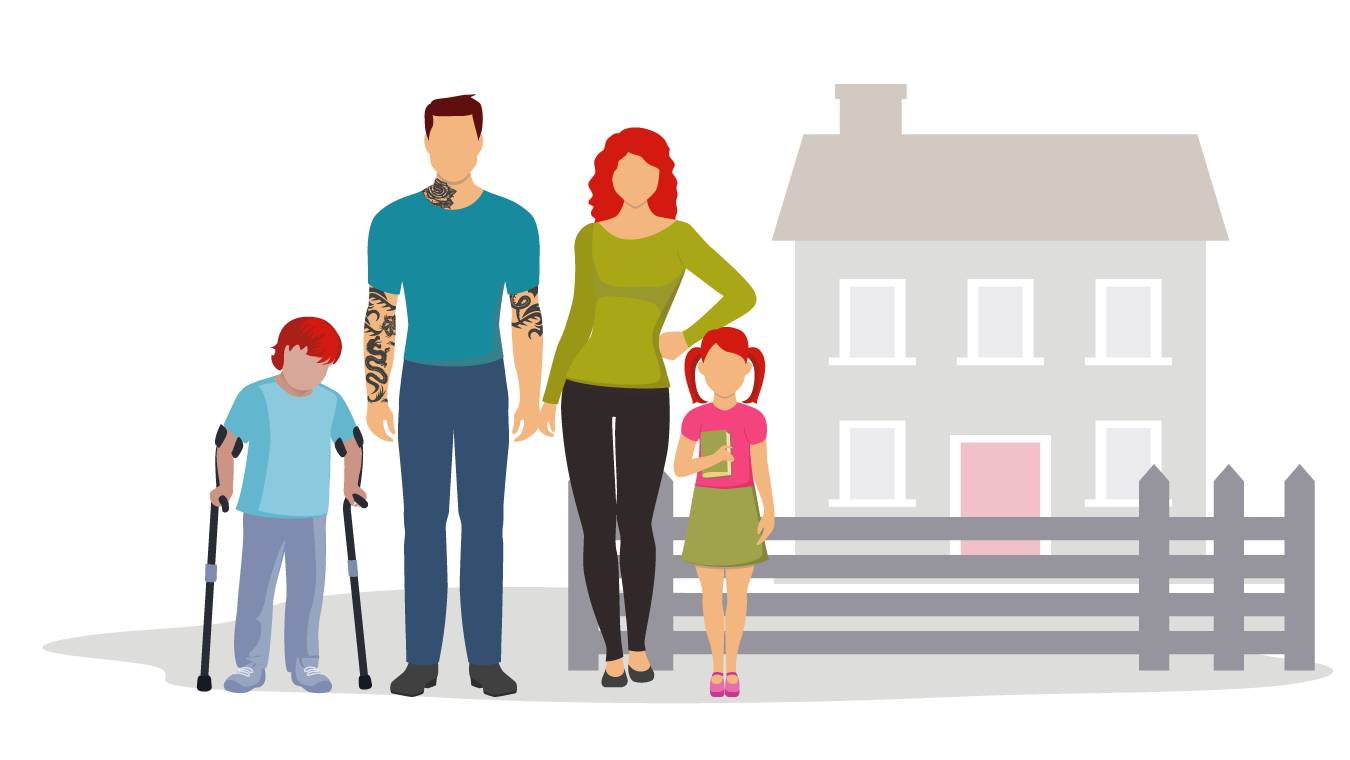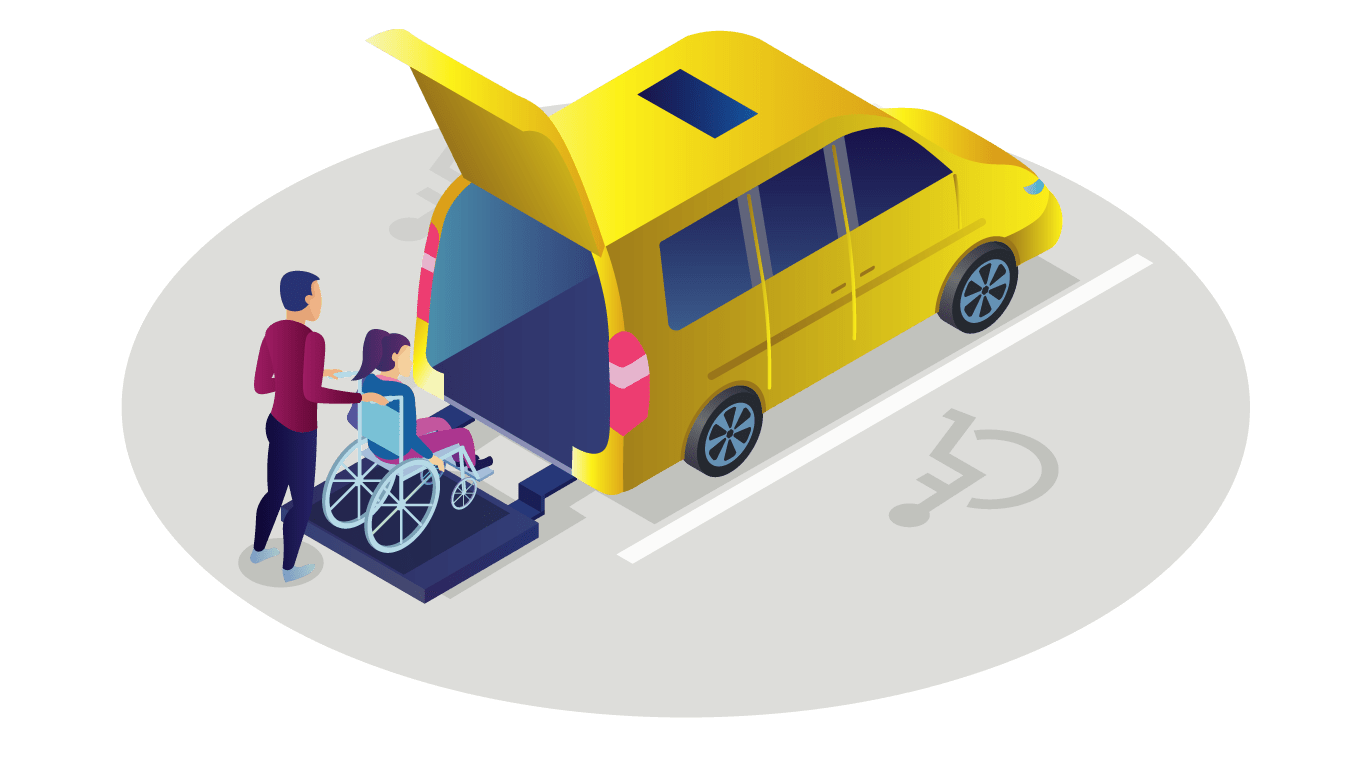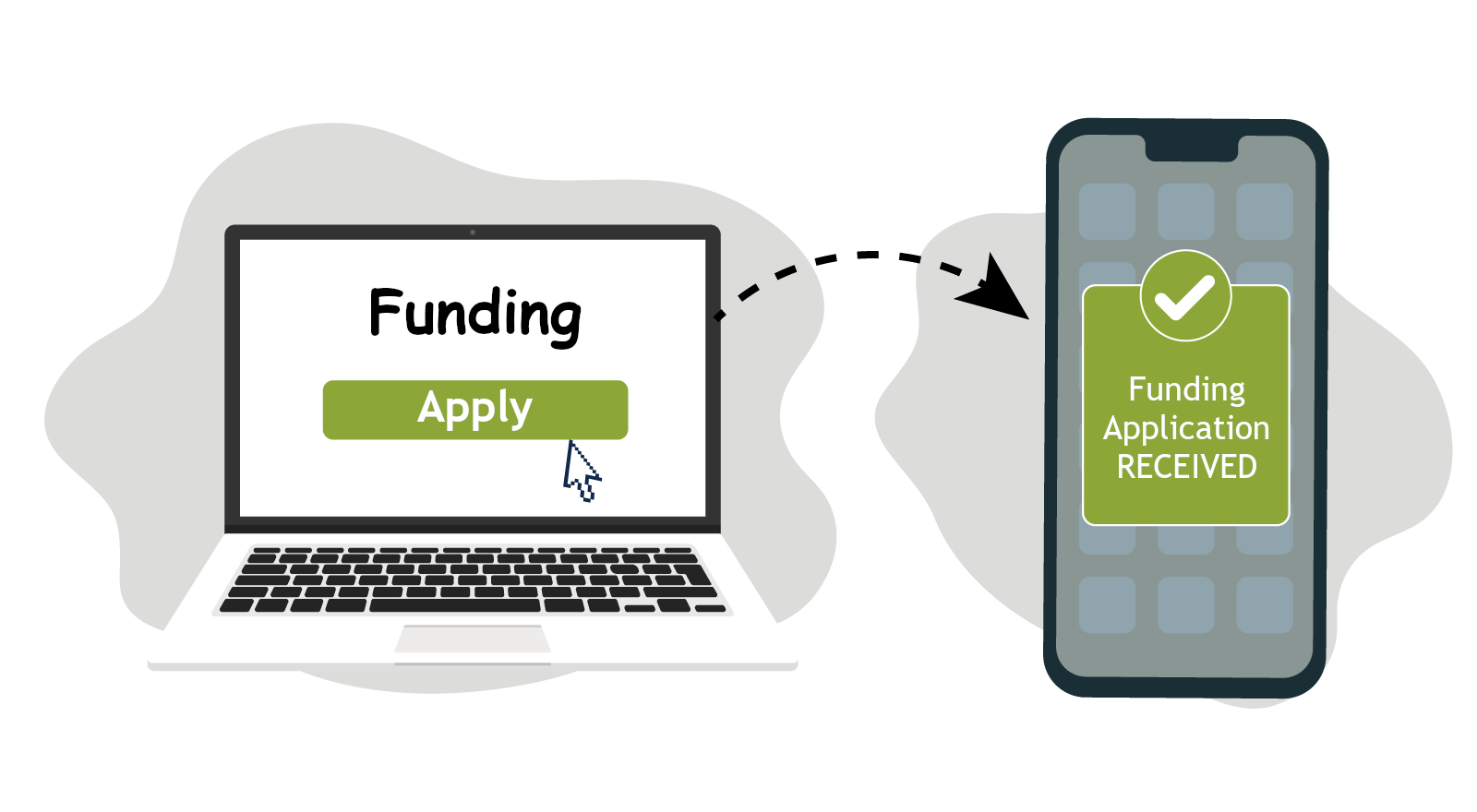Housing, Transport, Income and Benefits

Housing and Accommodation
Finding a house / home or making your own home suitable for your needs, may differ from one young person to another.
The main East Sussex County Council site has lots of information and advice on housing. Their 'Housing' web page covers topics including:
- Finding a home - information on social housing, exchanges, right to buy, help to buy, renting and selling
- Housing advice for young people - a guide for young people on finding a place to live and what to do if you are at risk of becoming homeless
- Housing benefit - how to apply for housing benefit if you're unemployed, on a low income or claiming benefits
- Help with your housing and staying in your own home - Help with issues including arrears, debts, benefits, landlords, or unsuitable housing.
- Help to keep warm and well - advice and support if you are struggling to keep your home warm
- Advice if you are homeless - advice for young people aged 18 or over, who are homeless
Visit the East Sussex County Council website for more information:
The site also has a separate web page about supported and sheltered housing. This includes:
- Sheltered housing - warden-assisted housing for older adults and disabled people.
- Supported housing - round-the-clock care for disabled adults and those who are vulnerable.
- Help with your housing and staying in your home - support if you are at risk of losing your home or you have housing issues
- Care Choices directory - search for registered care homes and care providers in the East Sussex area
- Temporary accommodation with on-site support. - this includes temporary accommodation for people with mental health issues
- Shared Lives scheme - a paid role providing accommodation and support for someone who would find it hard to live alone
Visit the East Sussex County Council website for more information:
Find Housing Support
Adult Social Care have created housing categories on 1Space for those with different needs. You can visit the specific categories to find out more information:
- Sheltered / supported housing | East Sussex 1Space
- Residential care homes | East Sussex 1Space
- Homeless or at risk of losing your home | East Sussex 1Space
- Respite / Short Breaks | East Sussex 1Space - this is separate to Children's Services short breaks / respite. You can find out more about that on our Short Breaks web page.
You can use the filters on each category to find the most suitable services. You can then contact them directly for more information.
Please note, most of the services listed in the links above are for young people aged 18 and over.
Housing Advice and Guidance
My family, Our Needs has a web page that provides information on all the different types of housing for people with a disability.
Housing Adaptions
For more information on housing adaptions, please visit:
Travel and Transport
There are various discounts and support services for children and young people when it comes to transport. This includes children and young people with and without SEND. This section aims to highlight some of the support available.
Bus Travel
Anyone aged 5 and over with a qualifying disability can apply for a disabled person's bus pass. The bus pass allows for free travel on local buses throughout England. The main East Sussex County Council site provides more information. This includes information about what disabilities qualify, and how to apply:
There are further discounts available to children and young people who use buses. A child or young person does not need to have SEND to access the discounts below:
- Bus travel discounts for young people and students | East Sussex County Council
- The education Freedom Pass explained | East Sussex County Council
- East Sussex school and college buses | Stagecoach
Train Travel
There are train discounts and railcards available to those with disabilities, and for their companion. The main East Sussex County Council site provides more information:
Southeast Communities Rail Partnership offer a ‘Try a Train’ experience. This provides an opportunity for those who lack confidence travelling by train. It allows them to visit their train stations and to experience a train journey.
They are for people who have any form of disability or access needs who wish to build their confidence when travelling. The trips are also available to those who may encounter other barriers to travelling. For example, senior citizens, non-English speakers, low income families.
Learning to Drive / Driving a Car
Young people with SEND may benefit from a personalised approach when learning to drive. This can include the use of:
- specialist driving instructors,
- adapted vehicles, and / or
- reasonable adjustments during a theory test.
Disabled Motoring UK is a charity and website which supports disabled drivers. Their website includes information, advice and guidance for any concerns disabled drivers may have:
The National Autistic Society have created a guide for autistic people learning to drive.
The main Government website has general information on learning to drive. This includes a web page for finding approved instructors:
- Introduction to driving lessons and learning to drive | GOV.UK
- Find a Government approved driving instructor | GOV.UK
We recommend contacting individual instructors to ensure they can meet your specific needs.
The Motability Scheme can help towards the cost of driving lessons for young people aged 16 to 29. To be eligible you must receive:
- the higher rate mobility component of Disability Living Allowance (DLA), or
- the enhanced rate mobility component of Personal Independence Payment (PIP).
You must also have, or be applying for, a mobility car. For more information, visit the Motability Scheme website.
Independent Travel Training (ITT)
LiftTraining East Sussex delivers bespoke 1-to-1 free ITT to people with SEND.
This service is for:
- those attending school or post-16 education, and
- aged between 10 to 21 years old.
They aim to help develop the skills and confidence for young people to travel to school and college using public transport.
Find out more on the National Star website:
SEND School and College Transport
If a young person with an EHCP is unable to travel independently to their college due to their SEND, they can apply for post 16 travel assistance. Their application and family circumstances will be assessed to determine whether there are barriers to stop them from getting to college without assistance. Please note, SEND transport changes when going from school to college.
East Sussex County Council's website provides more information and a way of applying:

Income and Benefits
Benefits Calculators
Benefits calculators can be a good place to start. They are free and anonymous. They can provide you with an estimate of:
- what benefits you could get
- how much the benefit payments might be
- how your personal circumstances can affect what you're entitled to
Some useful benefits calculators include:
- Benefits Calculator | entitledto
- Benefits Calculator | Turn2us
- Better Off Calculator | Policy In Practice
The Government website provides more information about benefits calculators:
Benefits
Benefits change as a young person becomes an adult. There are adult welfare benefits that young people and their family may be entitled to. Parents and legal guardians receive child benefit for every child they are responsible for who is under the age of 16. This changes to under the age of 20 if they are in approved education or training. This means they are on a college or a recognised training course.
You may also find it helpful to read the guidance held on Contact. Contact is a Special Educational Needs and Disabilities (SEND) information website. They have a page specifically on 16+ benefits:
Parents and legal guardians can also claim tax credits. There are ‘top-up’ amounts for these benefits if the child or young person has a disability and meet the eligibility criteria.
Families might be eligible to claim Carer's Allowance but it is means tested on your weekly income. The main government website provides more information:
Disability Payments
The main benefits for adults with a disability are Disability Living Allowance (DLA) or Personal Independence Payment (PIP). DLA and PIP are benefits paid to cover the extra costs of a person’s disability or health needs. They are both split into two components:
- Daily living or care, and
- mobility.
DLA is available to children under 16. PIP is available for anyone aged 16-64 with a disability. The Government website has more information on both DLA and PIP:
- Disability Living Allowance (DLA) for children: Overview | GOV.UK
- Personal Independence Payment (PIP): What PIP is for | GOV.UK
If you need help with DLA / PIP claims, there are a few options. Citizens Advice and Hastings Advice and Representation Centre (HARC) can both help support you. Please note, due to capacity HARC may not always be able to take on new referrals. In this case, we recommend you contact your local Citizens Advice.
You can visit their websites to find out more:
Employment and Support Allowance (ESA)
You can apply for Employment and Support Allowance (ESA) if you have a disability or health condition that affects how much you can work.
ESA gives you:
- money to help with living costs if you’re unable to work
- support to get back into work if you’re able to
The main Government website provides more information:
Personal Budgets
A Personal Budget means that someone who requires extra support or adaptations to their home is allocated some money. This allows them to choose and pay for the care and support they want.
These funds might be available through:
- The Local Authority
- A Personal Health Budget (if the person is funded by NHS Continuing Healthcare); or
- A joint (integrated) personal budget combining health and social care funding
There are different ways you can take and manage a Personal Budget:
- Direct Payment – this is where you are given a payment instead of services, to buy the services you want
- Leave it to the local authority or NHS with the responsibility for commissioning services. You will still choose the services you want
- The combination of both of the above
Young people can receive direct payments from the age of 16.
You can discuss your Personal Budget with whoever supports you from Children's Disability Service (CDS), or the NHS.
Disabled Facilities Grants
Disabled Facilities Grants are funded by your local borough council. This includes Eastbourne, Lewes, Rother or Wealden. This grant can support adaptations in the home to make it more suitable for disabilities. Access to this grant is only via a needs assessment carried out by Adult Social Care at East Sussex County Council.
The main government website provides more information:
Personal Travel Budget (PTB)
A personal travel budget could help you to arrange your child or young person’s travel. We may offer you a PTB if we can’t offer you other travel assistance.
- your child or young person must be eligible for the Council’s travel assistance to school or college
- there must be no other suitable transport we can arrange, like taxis or a minibus
- you’ll be responsible for arranging all your child or young person’s school or college journeys
You can use it to help pay for the cost of transporting your child or young person to school or college.
Find out more about PTB, by visiting the main East Sussex County Council website:
Universal Credit
Universal Credit is a monthly payment to help with living costs. You may be able to get it if you’re on a low income, out of work or unable to work.
Your monthly payment is based on your circumstances. For example, your earnings or household income, housing costs and any health condition or disability you may have. The government website outlines how universal credit works:
- Universal Credit: What Universal Credit is | GOV.UK
- Universal Credit: Health conditions and disability guide | GOV.UK
Cost of Living
The main East Sussex County Council website has cost of living information. This includes money help, advice and support related to:
- your home,
- food,
- transport,
- and much more.
Find out more:

Additional Help and Support
MoneyHelper
MoneyHelper provide a web page, that offers financial guides for young people aged 16 to 24. This includes everything from paying rent and bills, to the best ways to save money. Visit the MoneyHelper website to find out more:
Amaze
Amaze are a local charity. They provide lots of information for young people with Special Educational Needs and Disabilities (SEND) about:
- housing,
- benefits,
- money, and
- much more.
Visit the Amaze website to find out more:
Preparing for Adulthood (PfA)
PfA have created a guide called ‘Better off in Work’. The guide includes advice about work, universal credit and a benefits calculator:
You can also visit the PfA web page, on the NDTi website:
East Sussex Local Offer directory of services
You can visit our SEND-specific online directory, hosted on East Sussex 1Space. The directory lists many different services both throughout the county and online. Services cover many topics, including:
- Advice, Guidance and Support Groups
- Activities and Events
- Mental Health and Wellbeing Support
Visit the East Sussex Local Offer directory.
Glossary of East Sussex SEND Terms
We explain some of the terms used on this website on our page, Glossary of East Sussex SEND Terms.